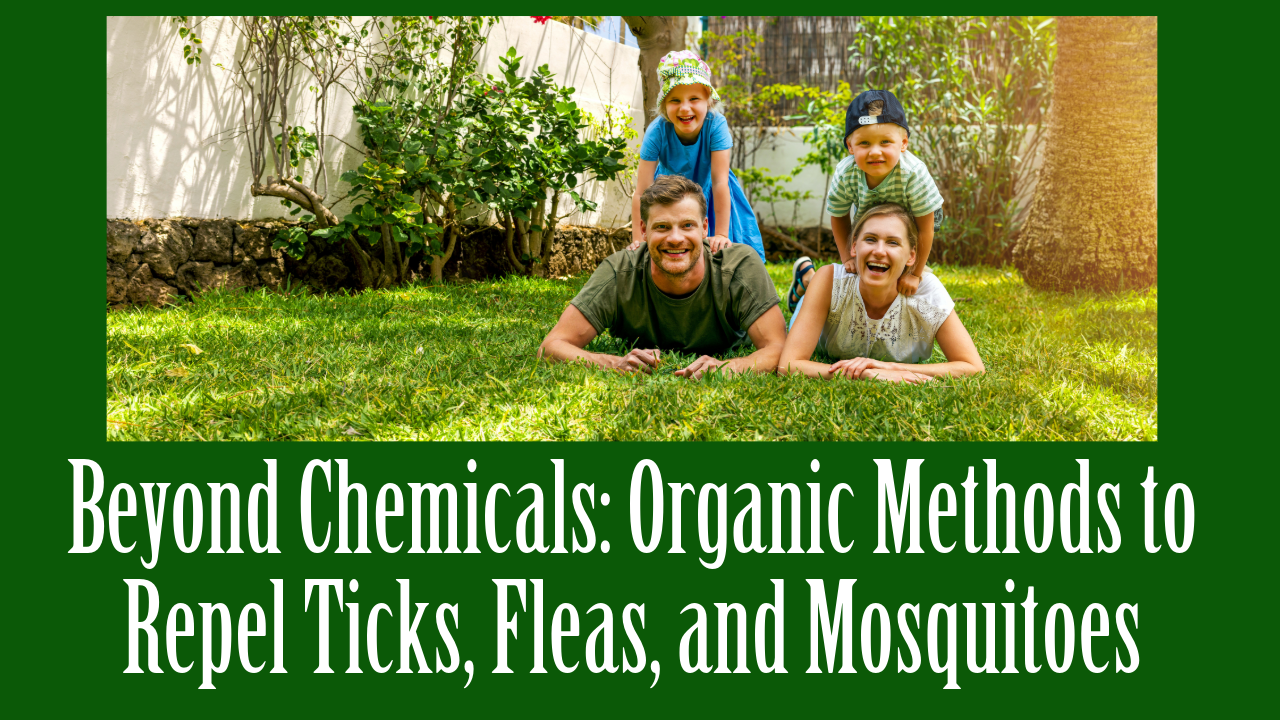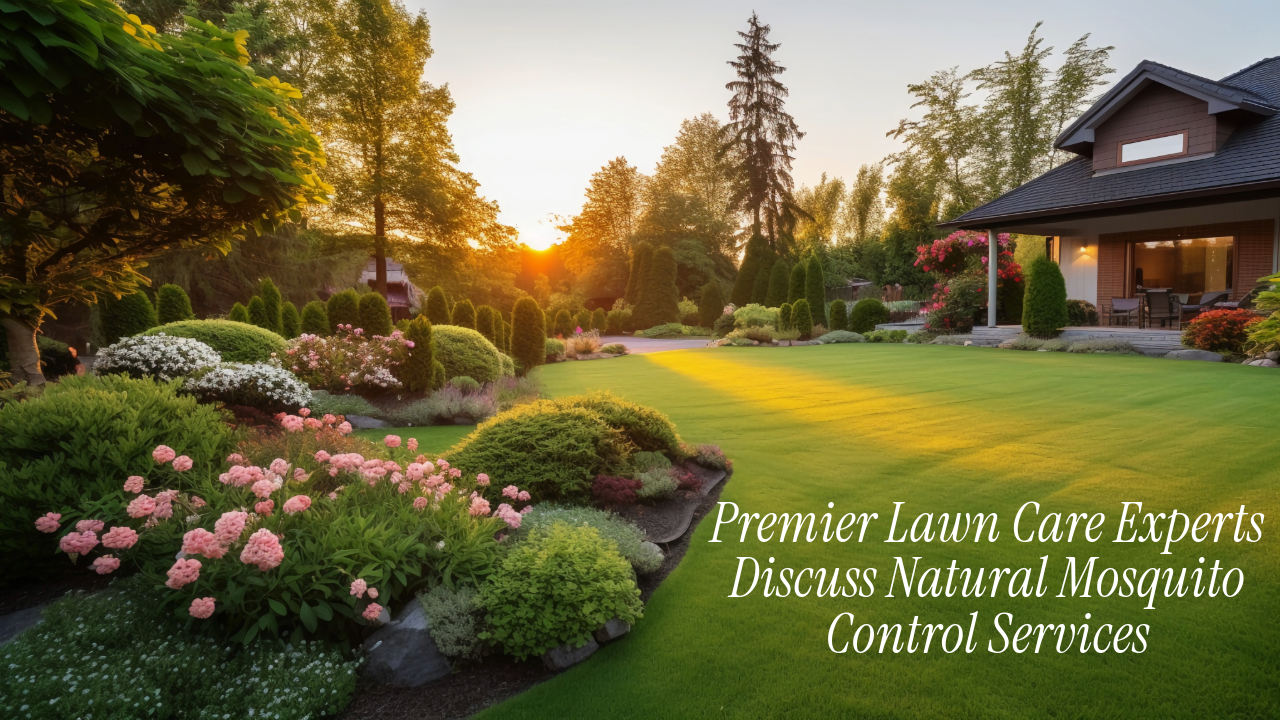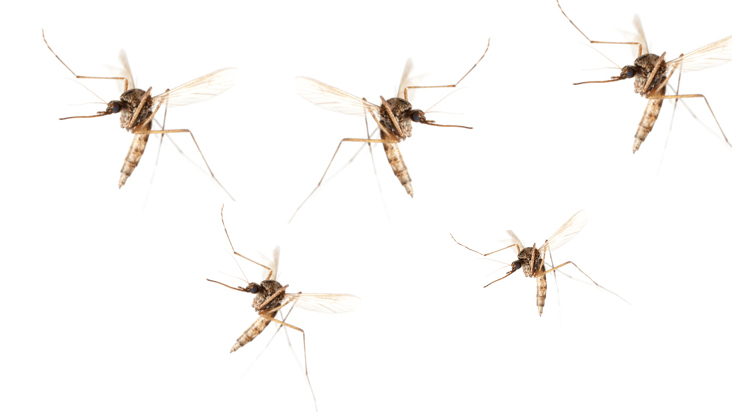With an increasing focus on environmental awareness, organic tick, flea, and mosquito control serves as a ray of hope for both gardeners and homeowners. Rather than relying on conventional chemical treatments, embracing organic methods of pest control not only offers protection against unwanted bugs but also fosters a thriving, healthier ecosystem within our very own backyards. Let’s explore the advantages of using an organic approach, highlighting the significance of maintaining the delicate balance of your garden’s ecosystem with strategies that are safe for your loved ones and the planet.
The Advantages of Going Organic for Pest Control
Embracing organic methods for controlling pests like ticks, fleas, and mosquitoes carries a multitude of benefits that extend far beyond simple pest mitigation. This approach significantly contributes to fostering a thriving ecosystem within your lawn and garden. By avoiding harsh chemical treatments, you encourage a wider variety of plant and wildlife to coexist, enhancing both the beauty and the ecological balance of your outdoor spaces. Additionally, organic pest control proves to be more economical over time. The emphasis on bolstering the natural resilience and defenses of your garden means less reliance on frequent applications of pesticides, leading to noticeable savings. The incorporation of organic practices not only supports the immediate health of your garden but also plays a crucial role in maintaining the intricate web of life that sustains it. This method leverages the inherent strengths of your garden’s ecosystem, promoting a self-regulating environment that naturally deters unwanted pests. Thus, by choosing organic solutions, you’re investing in a strategy that is both cost-effective and supportive of a robust, vibrant garden ecology.
Understanding Your Garden’s Ecosystem for Natural Pest Control
Delving into the ecosystem of your garden unveils a vibrant community where each organism, from the tiniest insects to the largest mammals, plays a critical role. This ecological network is the foundation of effective organic pest control. Emphasizing biodiversity, this approach nurtures the presence of beneficial predators and pollinators, which can significantly reduce the populations of ticks, fleas, and mosquitoes. For instance, encouraging birds, which feast on a variety of insects, or fostering habitats for ladybugs and bees, ensures a natural check on pest numbers. This balance is achieved not through the elimination of all pests, but by integrating practices that maintain ecological harmony. Cultivating a diverse range of plant species can create a less hospitable environment for pests, while simultaneously offering shelter and food for their natural enemies. By closely observing and understanding the interactions within your garden’s ecosystem, strategies can be tailored to enhance its innate pest management capabilities. This approach is grounded in the principle of working alongside nature, leveraging the existing food chain dynamics and habitat structures, to foster a garden that naturally deters unwanted visitors without resorting to harmful chemicals.
Organic Solutions to Repel Ticks, Fleas, and Mosquitoes
Incorporating organic methods into your pest control strategy offers a safe and effective way to discourage unwelcome insects without impacting the ecosystem’s beneficial inhabitants. Utilizing nature’s own repellents, such as aromatic plants and essential oils, provides a dual-purpose solution; these methods beautify your space while keeping pests at bay. For example, planting garlic and chrysanthemums around your garden borders can act as a natural barrier against ticks and fleas, leveraging their potent scents as a deterrent. Similarly, incorporating citronella grass in patio areas can create a mosquito-repellent zone that’s both functional and aesthetically pleasing.
Another avenue is the strategic use of essential oils derived from these plants, which can be applied in diluted forms around outdoor living spaces or on clothing to offer personal protection without the use of synthetic chemicals. Consider oils like eucalyptus, peppermint, and lemongrass for their known insect-repelling properties. Additionally, fostering an environment attractive to pest predators plays a crucial role. By installing features such as bird baths or nesting boxes, you encourage natural allies in your fight against pests. This symbiotic relationship enhances your garden’s biodiversity while managing pest populations naturally, ensuring a harmonious, pest-reduced outdoor area.
The Economic Benefits of Organic Pest Control
Transitioning to organic methods for controlling ticks, fleas, and mosquitoes not only prioritizes health and environmental sustainability but also introduces significant cost efficiencies. The initial switch from chemical to organic solutions may seem daunting; however, the long-term financial advantages are compelling. Organic pest control relies on leveraging the existing ecosystem and natural deterrents, which often require minimal investment compared to the ongoing costs associated with synthetic pesticides. By utilizing materials that may already be present in your garden or that are relatively inexpensive to obtain, such as specific plant species or homemade concoctions, homeowners can drastically reduce their expenditure on pest management. Furthermore, as these organic practices enhance the ecological balance of your garden, the need for pest intervention decreases over time, leading to further savings. The strategy focuses on preventive measures and creating an environment less conducive to pest infestation, thus reducing the frequency and intensity of treatments required. This approach not only aligns with a commitment to sustainable living but also demonstrates a cost-effective model for maintaining a healthy, vibrant outdoor space free from unwanted pests.
Protecting Your Family and Pets from Harmful Chemicals
The shift towards organic pest control methods signifies more than just a departure from conventional chemical applications; it underscores a deep commitment to safeguarding the well-being of our families and beloved pets. The adverse health impacts associated with synthetic pesticides—ranging from mild skin and respiratory irritations to more grave concerns like neurological disorders and long-term chronic conditions—highlight the urgent need for safer alternatives. Opting for organic strategies not only mitigates these risks but ensures that our gardens and outdoor spaces remain havens of health and safety. This approach, devoid of toxic substances, means that children and pets can explore and play in the outdoors without the looming threat of chemical exposure. It’s about creating an environment where the joy and freedom of outdoor activities aren’t marred by potential hazards, ensuring peace of mind for homeowners who prioritize the health of their loved ones. By embracing organic methods, we make a conscious choice to protect not just the immediate health of our families and pets but also contribute to the longevity of their well-being.
Contributing to a Healthier Planet with Eco-Friendly Lawn Care
Choosing organic methods for pest control goes beyond the boundaries of your own backyard, connecting your efforts to a worldwide initiative to nurture a more sustainable environment. By forsaking synthetic pesticides in favor of natural alternatives, you play a crucial role in reducing harmful chemical runoff that can contaminate our waterways, negatively affecting both aquatic life and water quality. Additionally, organic lawn care practices support soil health by promoting the activity of beneficial microorganisms. This not only improves the resilience and fertility of your garden soil but also aids in carbon sequestration, helping to mitigate the impact of climate change. Moreover, by maintaining a landscape that utilizes organic pest management techniques, you’re contributing to biodiversity, offering a refuge for pollinators and other wildlife whose populations are often threatened by conventional agricultural practices. This holistic approach to lawn care ensures that your efforts to maintain a beautiful and pest-free garden also foster an environment that sustains the delicate balance of our planet’s ecosystems. Each choice for organic over chemical solutions amplifies the message of environmental stewardship, setting a precedent for future generations to cultivate a healthier, more sustainable world.
Immediate and Long-Term Strategies for Organic Pest Control
To effectively combat ticks, fleas, and mosquitoes using organic methods, immediate actions combined with strategic long-term planning are essential. Initially, prioritize environmental adjustments that deter pests—this includes eliminating standing water sources where mosquitoes breed, keeping grass trimmed to reduce tick habitats, and introducing natural repellents like diatomaceous earth for fleas. Additionally, consider the strategic placement of pest-repelling plants and the application of essential oil blends in areas of frequent human and pet activity.
For sustained success, the focus shifts to cultivating a garden ecosystem that inherently manages pest populations. This involves diversifying plant life to support a range of beneficial insects and animals that prey on pests. Creating habitats for these natural predators, such as birdhouses or bee hotels, further integrates your garden into the local ecology. Complement these efforts with organic soil enhancement techniques that promote healthy plant growth, as robust plants are less susceptible to pest invasions.
By marrying immediate interventions with a commitment to ecological balance, your garden becomes not only a sanctuary from pests but also a cornerstone of biodiversity. This dual approach lays the foundation for a resilient outdoor space that thrives without reliance on chemical interventions, safeguarding the health of your family, pets, and the environment for years to come.
Please contact The Veron Company today with any and all questions about our vast array of services, and landscape design needs. We have a full crew of trained and experienced professionals to handle the job for you. Our company has been concentrating on maximizing your home’s potential since 1982.





